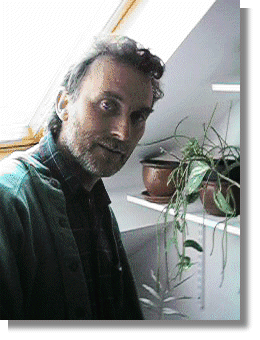Volume 12, Issue 2, 1998

Editorial
Hobbs’ choice ...
This is the first issue of CHEER since the departure of Phil Hobbs from the ILRT to pastures new at Gemini Consultants. While other members of the team may come and go, Phil's contribution to the work of CTI Economics, CHEER, the Economics Consortium, WinEcon and the Institute itself has been enormous, indeed pivotal. Having worked with him on a great many of these projects I have seen at first hand the enormous enthusiasm, energy and above all professionalism that he has brought to them. It is a tribute to the work that he has put in over the years that he leaves behind a smoothly functioning team at the Institute which will be able to carry on the good work without him.

Phil first joined what was then the Centre for Computing in Economics in May 1990 as Project Manager, having completed work on an ESRC project as part of the Small Firms Initiative. The Centre had been established in 1989 with Peter Dolton as Director, and after a succession of temporary short-term appointments Phil brought a measure of continuity and stability to its activities, especially as shortly after Phil's arrival Peter Dolton was away on study leave before then moving on to his Chair at Newcastle. One of Phil's first duties was to oversee the production and distribution of the first version of the Economics Software Catalogue. He also initiated the Centre's programme of workshops, the first being "Statistics Packages for Economists and Econometricians" which was held in Bristol in September of 1990.
During 1991 Phil began a programme of departmental visits to promote the use of computers in teaching, organised a Computing Exhibition at the Royal Economic Society Conference and oversaw the move of the CTI Centre for Economics to Woodland Road from Berkeley Square.
In February 1992 the CTI Centre for Economics and the CALECO Research Group jointly hosted the inaugural meeting of what we called the "Software Developers' Forum", an event which led to the formation of the "Economics Consortium" and the bid to TLTP for funds to develop what was to become WinEcon. The Economics Consortium consisted of people from eight different universities (including Bristol) working on the design and economic content of WinEcon, as well as a central group at Bristol working on the programming and overall functioning of the software. Phil took on the role of Director for the project and without his project management skills, people management skills and general air of professionalism it is unlikely that WinEcon would have ever finally emerged in all its glory (and even then there were some hairy moments!)
Although managing the WinEcon project occupied a good deal of Phil's time from 1992 onwards, he also oversaw the growth of the Centre both in terms of the number of projects being worked on and the number of staff working in the Centre. During 1992 Phil was elevated to Director of the Centre and a new Project Manager was taken on after further funding had been secured for the Centre to continue through until 1994.
In 1993, in a typically far-sighted move, Phil agreed to host the ESRC's Networked Information Officer, Nicky Ferguson, and a new project for which Nicky had just received funding - The Social Science Information Gateway. So the CTI Centre for Economics, or CTICCE as it was now called, and SOSIG came together under one roof. Nicky was joined by Debra Hiom and in 1994 the CTICCE and SOSIG Web sites were both launched and the first Beta version of WinEcon appeared. In 1995 the CALECO conference moved, for the first time, to Bristol with its organisation being shared between the CALECO Group and CTICCE.
As Phil and Nicky both won new contracts and tenders the Centre reflected the broader range of these projects and services and metamorphosed into the Centre for Computing in the Social Sciences. Not stopping for breath, the CCSS then merged with the Education Technology Service at the University of Bristol to form the Institute for Learning and Research Technology (with CTI Econ now joining the CTI Centre for Medicine as one of the many projects under the ILRT umbrella). The growth of the enterprise and the changes which took place did not come about by accident but were the result of strategic thinking and a lot of hard work from Phil, putting together bids to the funding bodies, negotiating with university officials and recruiting committed and effective staff. He can be proud of his achievements and we wish him well in his new career.
Guy Judge
Department of Economics, University of Portsmouth
... Nicky's Voice

Nicky Ferguson has now taken over the reins as Acting Director of the ILRT, with Jane Williams as his Deputy. Nicky has been involved with the ILRT and its predecessors for five years, winning funding from the ESRC, eLib and the EC to extend the research and the services hosted there. For those of you who haven't met him Nicky has provided us with the following short biography:
Nicky Ferguson currently directs a number of major national services for social scientists and co-ordinates three Electronic Library Programme projects and a multi-partner international collaborative research project in the EC's Fourth Framework Telematics for Research programme. He has also recently undertaken a number of small projects and consultancies.
He has wide experience of training and has run hands-on workshops and presented papers at many national and international conferences. He has also written extensively for journals in the social sciences and other disciplines on the Internet and the use and utility of networked information. He is also a member of several user and advisory groups.
Before joining the University of Bristol he worked for the Economic and Social Research Council (ESRC) on a two year consultancy, gathering information on, and raising awareness of, networked information amongst the UK social science community.
In his entrepreneurial past Nicky has also set up and successfully sold on two small businesses. He has also worked as a theatre director and as an actor on stage, TV and film. He lives in the Cotswolds with some of his family and a large number of snails.
The next issue of CHEER, Volume 13 Issue 1, will be published in April 1999.
Material to be considered for publication should be sent to me by the end of January 1999. All submissions should be in a well recognised electronic format (Preferably MS Word or WordPerfect files with graphics files in .gif format). They should be sent on disk to my address here at Portsmouth or as e-mail attachments to Guy.Judge@port.ac.uk. Contact me by e-mail first if you are unsure whether the format you wish to use will be acceptable.

